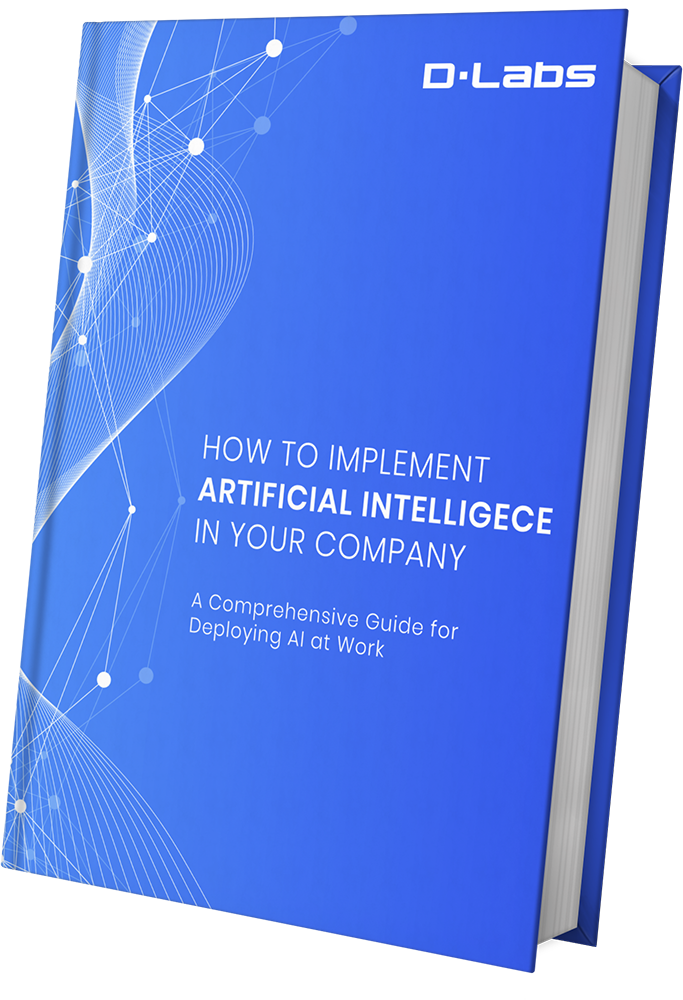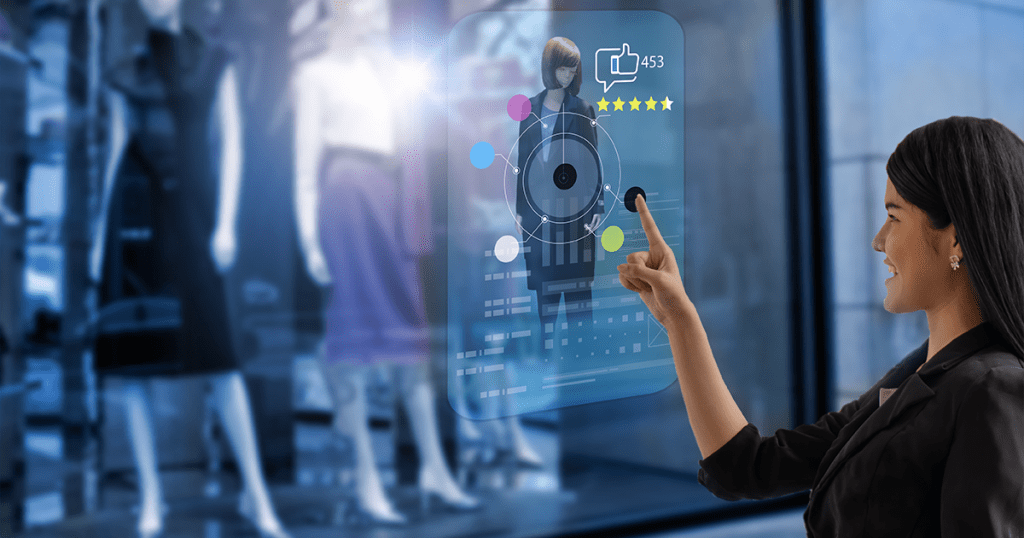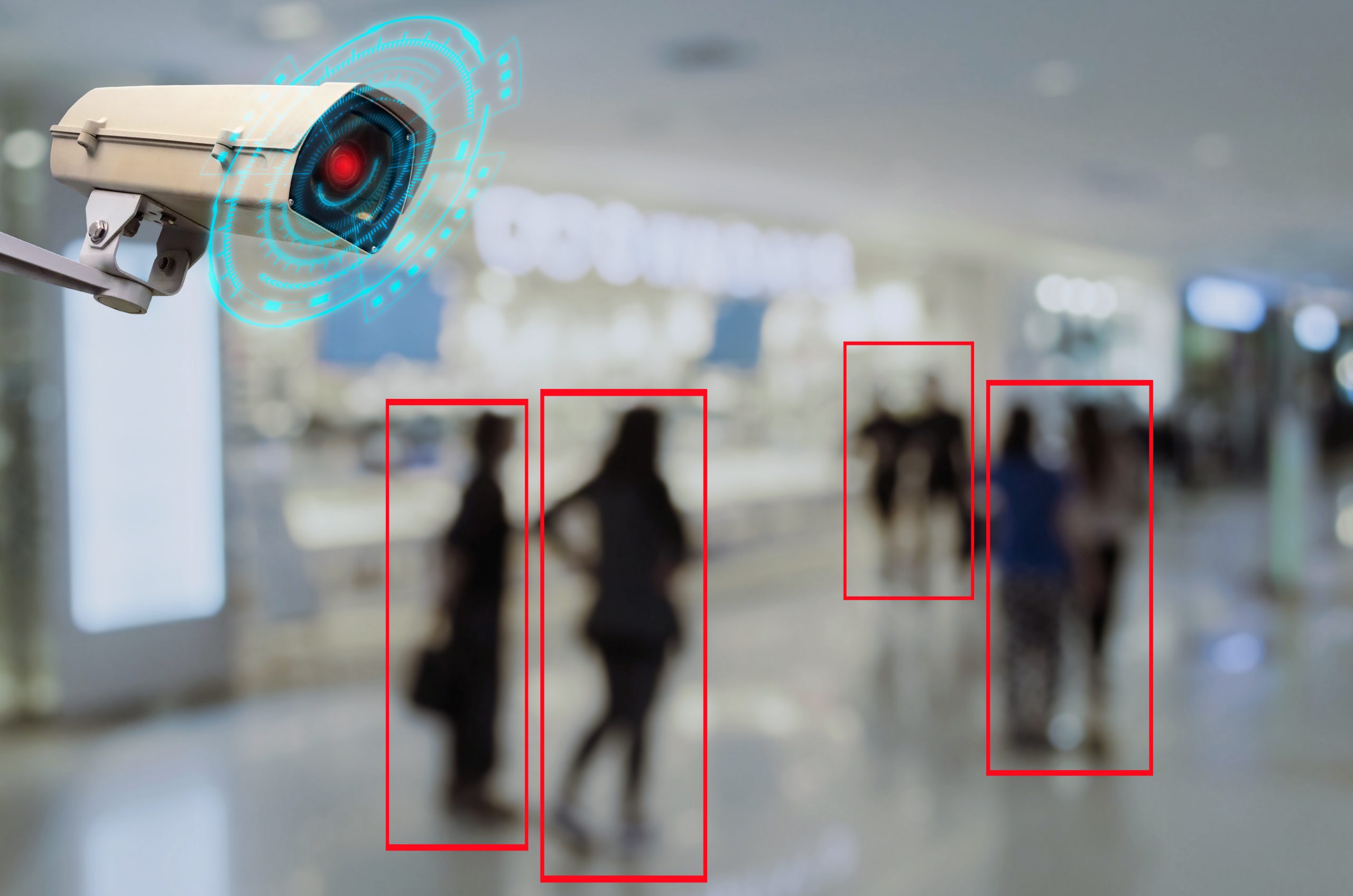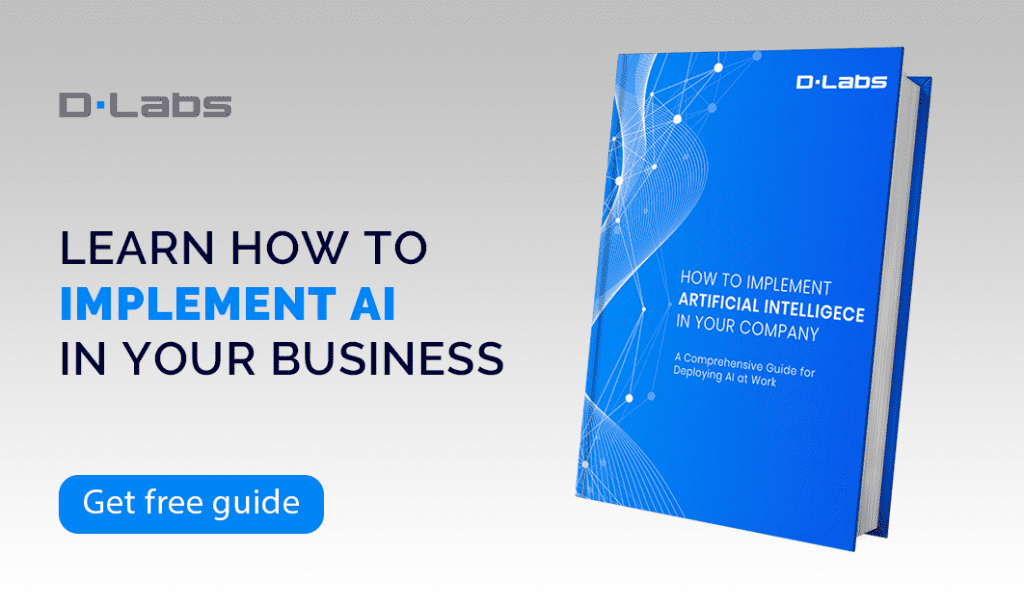In the retail industry, you must analyze data to achieve the best results. This is where AI technology can help, as it unlocks many opportunities to optimize almost every aspect of any retail business.
This article will cover the nine biggest benefits of using AI in retail. And how it will positively impact your business, employees, customers, even the environment.
Importance of AI in the retail industry
Artificial intelligence is growing ever-more popular in the retail industry. We’re seeing a growing base of applications. And that’s why Fortune Business Insights forecasts that the AI in retail market will reach $24.1 billion by 2028, which equals a growth of 24.4% CAGR.
Why such interest in AI technologies in the retail world? Well — the sector generates swathes of data every day, spanning products, customers, promotions, sales trends, almost anything you can think of. And thanks to machine learning and automation, this data can be processed to benefit retail companies, giving them a tremendous competitive advantage.
An excellent example of this comes from a recent DLabs project. Our client had upwards of 20,000,000 customers in its database. And its goal was to predict customer buying behaviour to improve how they designed promotions.
Our team prepared machine learning models based on 2,000 variables across three data types (transactional, behavioural and demographic, and commerce) to help the retailer better understand its customers.
The solution enabled our client to make data-driven decisions (like what to promote, when, and to whom), plan better promotional activities, and more, as we’ll now cover.
[ To find out more, read this article]
AI in retail: 9 biggest business benefits
1. Increased supply chain efficiencies
One of the leading benefits of artificial intelligence, in general, is helping humans with routine, time-consuming tasks. According to SnapLogic, 61% of employees say that AI adoption in the workplace boosted productivity. And the same can happen when using AI in retail.
Let’s look at supply chain optimizations as an example. AI can help logistics drivers find the optimal delivery routes. And robots can help with picking and packing orders, allowing employees to focus on other essential tasks.
Retail companies are also harnessing computer vision and product recognition software in warehouses. Using an Nvidia system, Zalando employees can now find the shortest possible route across the warehouse floor to collect all the items in an order.
The algorithm finds the optimal pick route for workers and, as a result, the company has decreased the travel time per item picked by about 11%.
2. Improved customer satisfaction
Artificial intelligence can help retailers provide the best possible customer experience. Improvements range from reducing shopping time with automated checkouts to more personalized discounts to offering round-the-clock customer service with chatbots.
Thanks to these solutions, it’s now easier than ever to exceed customer expectations, meaning higher satisfaction and more brand loyalty, but the possibilities don’t end there. Companies are even creating checkout-free experiences, meaning no queues and ultimate convenience.
Amazon was the first company to introduce an AI-powered store through the innovative Amazon Go, which uses computer vision to spot when customers put something in their basket. Then, when they leave the store, Amazon charges their account directly.
Check the experience for yourself in this short video:
3. Optimized product location
Algorithms can quickly analyze historical data on variables like consumer preferences, product location, sales season, and weather conditions. They can then suggest the best place to stock products.
With customers able to find products more easily, they’re more likely to return to the store. Taking this one step further: stores can even use computer vision to monitor behavior and identify where customers typically find products.
4. Personalization leading to higher sales
Did you know that as many as 72% of customers will only engage with personalized messaging? So — by analyzing customer behaviour, you can send more personalized offers and increase sales.
You can even tailor recommendations based on what a customer has looked at or bought, the time of day they typically shop, or the promotions they’re most likely to buy.
5. Reduced costs
AI can certainly save you from unnecessary costs, including advertising and marketing. It does this by helping you target those who are most likely to buy your products — or by helping you only purchase inventory that you can sell.
According to Gartner, AI for price optimization can grow revenue from 1% to 5% and extend the customer lifecycle by as much as 20%.
6. Enhanced personnel planning
AI solutions can help businesses manage rotas and seasonal staffing better, enabling a more structured schedule and more efficient personnel use. This means employees aren’t ever overworked, and customers are always adequately served.
One such example comes from a DLabs.AI project where we boosted the decision-making processes for 8,000 convenience stores. Our ML-based solution allowed a client to forecast a defined product group’s sales for each store seven days a week at specific time intervals.
As a result, store owners can now plan supply and distribution, ensuring the shelves are always appropriately stacked.
7. Optimized, data-driven decisions
According to Chatbots Magazine, 44% of executives say AI’s most important benefit is generating insights they can use to make data-driven decisions.
For example, by analyzing data about previous advertising campaigns, promotions, and customer preferences, businesses can draw appropriate conclusions and better plan future actions. In doing so, they remove the guesswork and increase campaign effectiveness.
Data also enables better budgeting and the avoidance of misplaced investments.
8. Bolstered security
Data is the currency of our time. Nowhere is this more true than in retail, where data about customers, shopping trends, and sales is invaluable. The challenge is that data leakage can cost businesses a lot.
But thanks to advanced technologies based on artificial intelligence, businesses can analyze and identify unusual data movements in real-time, then flag risks immediately. And the same systems can protect your employees, your customers, and your money.
Using computer vision, cameras spot suspicious activity to detect potential theft, allowing stores to take appropriate action, even sounding an alarm and alerting security guards, employees, or the police.
9. More eco-mined operations
These days, businesses have to factor their carbon footprint into operations, and AI can also help with that. About one-third of the food produced globally (some 1.3 billion tonnes) gets lost or wasted. But how to solve this massive problem?
The first step could be better inventory management, enabling businesses to minimize food wastage by only ordering what they need. This is particularly important in the food industry, where the risk of wastage is high.
As it happens: reduced food waste is one of the main benefits our demand forecasting solution delivered to the chain of convenience stores mentioned in point six.
Transform your retail business with a custom AI solution
As you can see, AI can benefit your business in many ways.
So — if you’re looking for a technology partner to create a custom AI solution for you, why not first check what we’ve done for other businesses. Then, if you have any questions or thoughts, feel free to get in touch.
Our experts would be happy to share their knowledge and help you create the best solution for your retail business.







